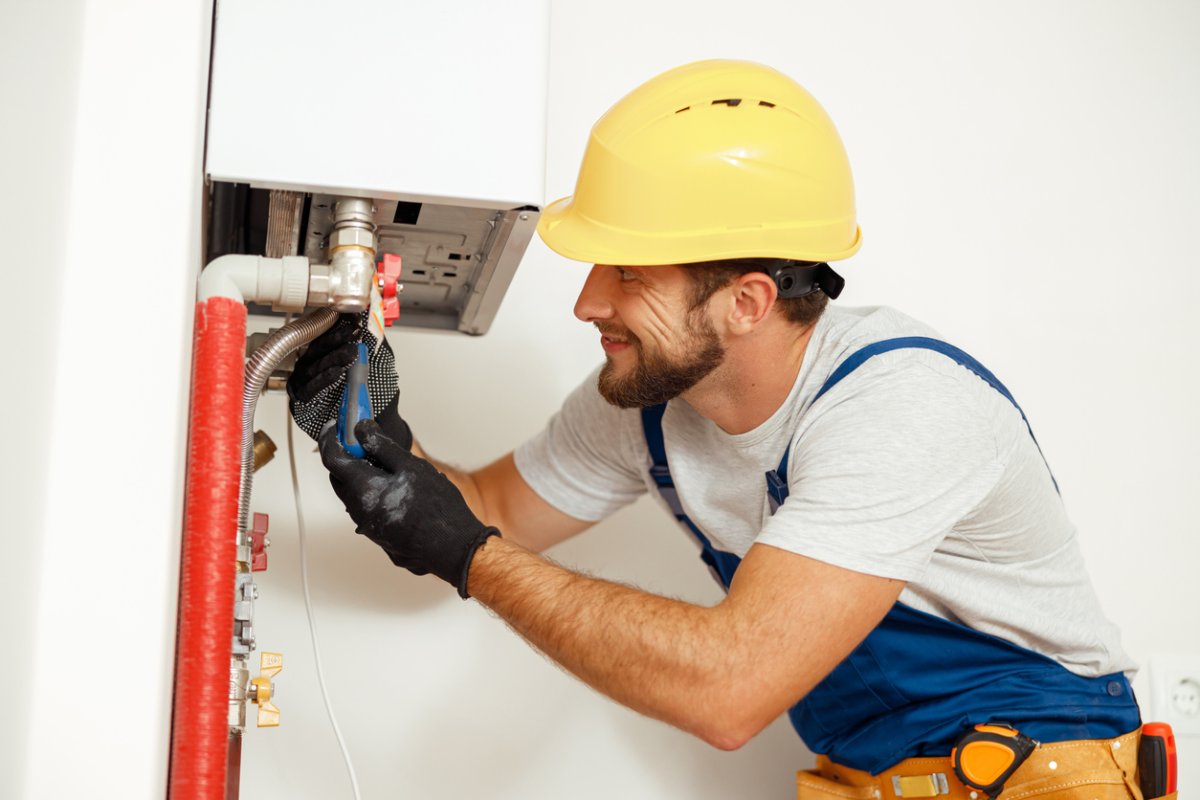Yes, a handyman can install a water heater, but it depends on local regulations. Always check if a licensed plumber is required for installation.
Installing a water heater is a significant task that impacts your home’s comfort and efficiency. Many homeowners seek help from handymen due to their versatility and skills. However, not all handymen have the required certifications for plumbing jobs. Proper installation is crucial to ensure safety and functionality.
A poorly installed water heater can lead to leaks, damage, and even safety hazards. Understanding the qualifications of your handyman is essential. This guide will help you navigate the process of hiring the right professional for your water heater installation. Ensure your home’s hot water system is installed correctly for peace of mind and optimal performance.
Page Contents
Introduction To Water Heater Installation
A handyman can be very helpful for water heater installation. They have the skills to ensure everything works well. Proper installation is important for safety and efficiency.
Choosing a handyman means you get a professional touch. They understand the plumbing and electrical needs of water heaters. This helps avoid future problems and costly repairs.
Professional installation can save time and money. A handyman knows local codes and regulations. This knowledge ensures the installation meets all necessary standards.
In short, hiring a handyman for water heater installation is a wise choice. It provides peace of mind and quality work.
Types Of Water Heaters
There are two main types of water heaters: tank and tankless. Tank heaters store hot water in a large tank. They can run out of hot water during heavy use.
Tankless heaters heat water on demand. This means they provide hot water continuously. They are usually more energy-efficient.
| Type | Storage | Efficiency |
|---|---|---|
| Tank | Stores water | Less efficient |
| Tankless | No storage | More efficient |
Common fuel sources include electricity, natural gas, and propane. Electric heaters are easy to install. Gas heaters often heat water faster.
Choosing the right type can save money. Efficiency affects monthly energy bills.
Evaluating Your Installation Needs
Assessing space is crucial for a successful water heater installation. Measure the area where the heater will go. Ensure there is enough room for maintenance and repairs.
Capacity matters too. Choose a water heater that meets your household’s needs. Consider the number of people in the home and their hot water usage.
Local codes and regulations can affect the installation. Check with your local authority for specific rules. Compliance ensures safety and reliability for your water heater.
Qualifications For Water Heater Installation
Installing a water heater requires specific skills and knowledge. A handyman may have experience, but it is not the same as a licensed plumber. A licensed plumber has formal training and certifications. They know the local building codes and safety standards.
Choosing a handyman can save money. Yet, it might lead to issues later. A licensed plumber ensures the job is done correctly the first time. They provide warranties on their work, giving peace of mind.
Hire a professional if you are unsure about the installation. Complex systems need expert knowledge. Avoid DIY to prevent flooding or other serious problems. A licensed plumber can help with permits and inspections too.
Preparation Steps For Installation
Installing a water heater requires careful preparation. Gather all necessary tools and materials.
- Pipe wrench
- Adjustable wrench
- Screwdriver
- Drill
- Pipe fittings
- Water heater
- Plumber’s tape
- Safety goggles
- Gloves
Safety is very important during installation. Always wear gloves and safety goggles.
Make sure to turn off the water supply and electricity before starting.
Read the manufacturer’s instructions carefully for specific guidelines.

Credit: www.bobvila.com
The Installation Process
Installing a water heater involves several important steps. First, turn off the power and water supply. Next, drain the old water heater to remove any remaining water. Disconnect the plumbing and electrical connections carefully. Install the new water heater by following the manufacturer’s instructions.
Common challenges include tight spaces and heavy equipment. Use a hand truck to move heavy heaters easily. Leaking connections may also occur. Always ensure tight connections to prevent leaks. If facing electrical issues, consult a licensed electrician for help.
| Challenge | Solution |
|---|---|
| Tight Spaces | Use a hand truck for easier movement. |
| Leaking Connections | Check and tighten all connections. |
| Electrical Issues | Consult a licensed electrician. |
Post-installation Checks
After installing a water heater, it’s crucial to conduct post-installation checks. Start with leak testing. Check all connections and pipes for any signs of water. A small leak can cause big problems later.
Next, move on to the performance evaluation. Turn on the water heater and monitor its function. Ensure it heats water to the desired temperature. Listen for any unusual sounds that may indicate issues.
Always keep an eye on the pressure relief valve. This valve prevents pressure build-up in the tank. A malfunctioning valve can lead to dangerous situations.

Credit: www.amenify.com
Maintenance And Upkeep
Regular maintenance keeps your water heater running well. Check for leaks often. Look for rust around connections and tanks. Strange noises may signal a problem. Always check the temperature setting. It should be around 120°F to save energy.
Inspect the pressure relief valve yearly. This valve prevents pressure build-up. Flush the tank every six months to remove sediment. This helps improve efficiency and lifespan. Keep the area around the heater clear of clutter for easy access.
Watch for signs of trouble. Water discoloration can indicate rust. Low water pressure may point to a blockage. Unusual odors can signal gas leaks. Always act fast when you notice any issues.

Credit: www.amenify.com
Conclusion
Hiring a handyman to install your water heater can save you time and effort. A skilled professional ensures the job is done safely and correctly. Always check for certifications and experience before making your choice. This helps guarantee a smooth installation and peace of mind for your home’s hot water needs.
